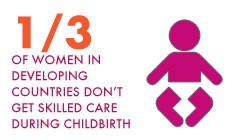
April 3, 2012 | Law and Justice
A Place at the Table, a Place on the Bench
Women Judges from Around the World Convene on the Eve of the Women in the World Summit
By Anna Louie Sussman
NEW YORK CITY—This year, on March 8, International Women’s Day, a select group of 30 women judges from 15 countries gathered in New York City in connection with the Women in the World Summit. At the invitation of the Women in the World Foundation, Virtue Foundation, Cornell Law School’s Avon Global Center for Women and Justice, and Fordham Law School, they discussed issues relating to gender and the constitution, as well as wider issues of access to justice for women and girls.
Currently, women make up approximately 30% of federal and district court judges in the United States, despite having been nearly half of law school graduates for the past quarter century, according to the National Women’s Law Center. Elsewhere in the world, women’s representation is even lower. In some countries, women are flat-out barred from serving in certain courts, such as religious family courts. For example, Lebanon’s criminal and civil courts feature a number of women judges, but religious courts -- where matters of divorce, inheritance and custody are decided -- are staffed exclusively by male religious leaders.
This has implications not only for the application of laws around the world, but also for how the law can and will be a part of sustainable development and community advancement. The law reaches deep into people’s lives, from family matters to issues like property rights, domestic violence or what university subjects women can study. Diversity on the bench ensures a deeper and broader representation of experiences and understandings of how law impacts people in different situations.
The Fifth Annual Senior Roundtable on Women and the Judiciary brought women judges together for a day of workshops and panels, centered around three main discussions. The first, on judge-led initiatives for women and justice, was presided over by Judge Ann Claire Williams of the U.S. Court of Appeals for the Seventh Circuit. Justice Shiranee Tilakawardane of Sri Lanka’s Supreme Court, Judge Virginia Kendall of the U.S. District Court, Northern District of Illinois and Judge Josselyne Béjar, Criminal Court, Mexico discussed the importance of having a collaborative response to crimes against women, such as a task force that encompasses different sectors and laws that focus on all aspects of the issue. They reminded the audience that the most effective strategies to empower women will be multi-disciplinary in their approach.
Fordham Law professor Tracy Higgins moderated the second panel, on gender and the constitution. She shared the stage with Judge Martha Koome of Kenya’s Court of Appeal and Professor Christina Murray of the University of Cape Town, South Africa. They discussed the role of national constitutions in helping secure women’s equality and how to make constitutional provisions more effective at achieving this goal. In referencing the experiences of South Africa and Kenya, the panel emphasized the positive impact of provisions that are progressive in their recognition of gender discrimination and bias, and that promote inclusivity.
Following lunchtime breakout sessions, Professor Elizabeth Brundige, the Associate Director of Cornell Law School’s Avon Global Center for Women and Justice, reminded the audience of the resources the Center offers to women judges and lawyers working on gender justice issues.
Previous roundtables have focused on eradicating gender-based violence, increasing access to justice for women and girls, and sustainable development, rule of law and the impact of women judges, with a special emphasis on the obstacles and solutions to increasing the participation of women in judiciaries throughout the world.
Citing Justice Sandra Day O’Connor, Women in the World Foundation President Kim Azzarelli used her closing remarks to remind the audience of the critical role women judges can and do play.
“The key to peace is the rule of law. The key to the rule of law is an impartial judiciary. And the key to an impartial judiciary is the participation of women.”
Anna Louie Sussman is a writer and editor for the Women in the World Foundation website, and a frequent contributor to major U.S. magazines and newspapers.
Download the report